Given the multiple challenges women and adolescent girls face, it is evident that promoting menstrual hygiene management (MHM) is not only a sanitation matter; it is also an important step towards safeguarding the dignity, bodily integrity and overall life opportunities of women and girls. – World Bank (source)
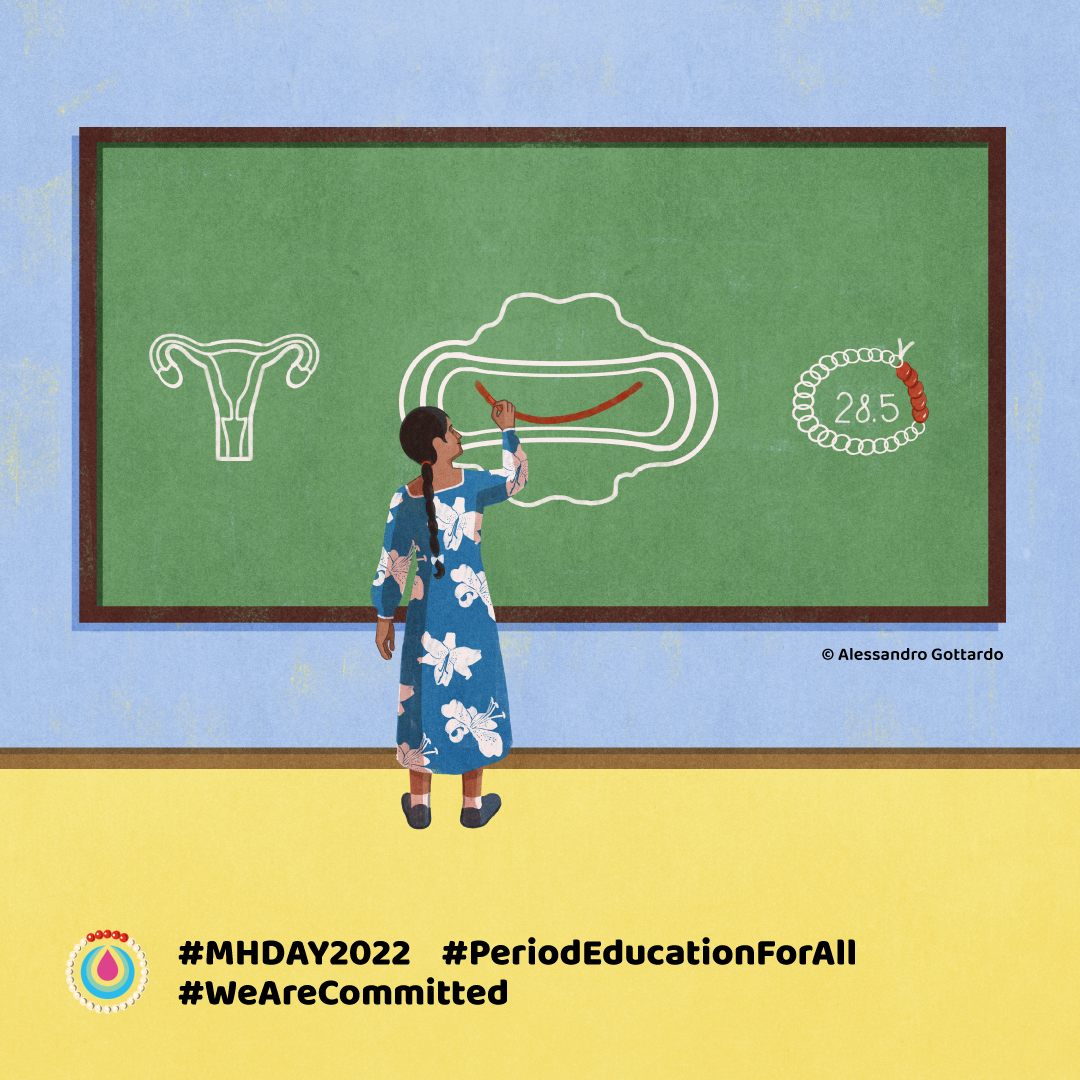 Across the globe, women and girls face a variety of challenges to safely and effectively manage menstruation, a naturally occurring process of bleeding that occurs as part of a female’s body cycle. Menstruation happens, on average, 450 times in a female’s lifetime, approximately 3,500 days or 10 years! Menstrual hygiene management is fundamental to the basic right to human dignity and enables women and girls to achieve their full potential.
Across the globe, women and girls face a variety of challenges to safely and effectively manage menstruation, a naturally occurring process of bleeding that occurs as part of a female’s body cycle. Menstruation happens, on average, 450 times in a female’s lifetime, approximately 3,500 days or 10 years! Menstrual hygiene management is fundamental to the basic right to human dignity and enables women and girls to achieve their full potential.
May 28th is Menstrual Hygiene Day (MH Day), a day focused on bringing groups together to promote menstrual health and hygiene for girls and women around the world. This year’s theme is “We Are Committed” and is in alignment with the United Nation’s 2030 Sustainable Development Goals (SDGs), supporting a vision of: “creating a world where no woman or girl is held back because she menstruates; a world in which every woman and girl is empowered to manage her menstruation safely, hygienically, with confidence and without shame.” An essential component to achieving this goal is that “everyone can access period-friendly water, sanitation & hygiene facilities everywhere.”
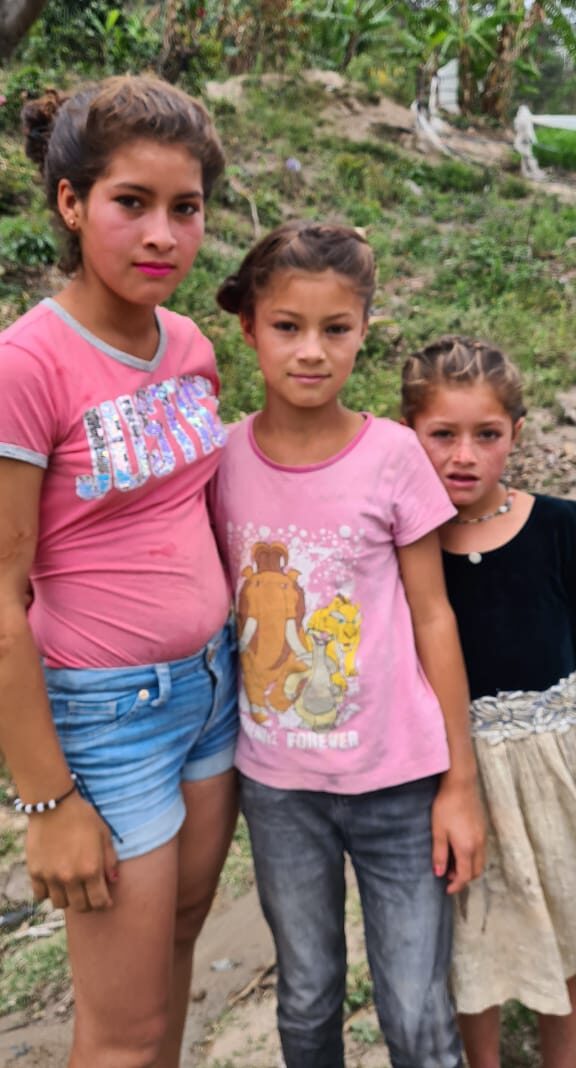 Among low-income populations and throughout underserved regions across the globe, poor menstrual hygiene management (MHM) has a detrimental affect on girls’ and women’s health and future. Inadequate and unsafe MHM stems from a lack of education about the topic, established taboos and stigmas, limited access to menstrual hygiene products, and a lack of safe sanitation infrastructure. As a result of these shortfalls, once menstruating, adolescent girls regularly miss school and often end up quitting altogether, dramatically limiting their future potential, while women miss work, restricting their income potential and creating unnecessary hardship. Without adequate facilities and support, girls and women also endure a variety of debilitating diseases, infections and rashes that are preventable.
Among low-income populations and throughout underserved regions across the globe, poor menstrual hygiene management (MHM) has a detrimental affect on girls’ and women’s health and future. Inadequate and unsafe MHM stems from a lack of education about the topic, established taboos and stigmas, limited access to menstrual hygiene products, and a lack of safe sanitation infrastructure. As a result of these shortfalls, once menstruating, adolescent girls regularly miss school and often end up quitting altogether, dramatically limiting their future potential, while women miss work, restricting their income potential and creating unnecessary hardship. Without adequate facilities and support, girls and women also endure a variety of debilitating diseases, infections and rashes that are preventable.
According to the World Bank, “at least 500 million women and girls globally lack adequate facilities for menstrual hygiene management (MHM).” This includes a lack of access to facilities and supplies in schools, workplaces, health centers, and family homes. (source)
How is Menstrual Hygiene Management (MHM) incorporated into PWW’s WASH programming?
“To manage menstruation hygienically and with dignity, it is essential that women and girls have access to water and sanitation. They need somewhere private to change sanitary cloths or pads; clean water and soap for washing their hands, bodies and reusable cloths; and facilities for safely disposing of used materials or a clean place to dry them if reusable. There is also a need for both men and women to have a greater awareness of good menstrual hygiene practices.” – WASH Matters (source)
 Almost a decade ago, while monitoring safe water programs in communities served in Honduras, PWW teams recognized a gap among women and girls. While families were generally enjoying vastly improved health from drinking and using safe water, there were still shortfalls in school attendance and persistent medical issues among adolescent girls and women. It was quickly identified that these issues were the result of a lack of access to menstrual hygiene resources and a lack of knowledge about menstruation and practices to healthfully manage it.
Almost a decade ago, while monitoring safe water programs in communities served in Honduras, PWW teams recognized a gap among women and girls. While families were generally enjoying vastly improved health from drinking and using safe water, there were still shortfalls in school attendance and persistent medical issues among adolescent girls and women. It was quickly identified that these issues were the result of a lack of access to menstrual hygiene resources and a lack of knowledge about menstruation and practices to healthfully manage it.
“As an organization, we saw the necessity to implement our Menstrual Hygiene Management workshop because, in our communities, the topic of menstrual hygiene was considered taboo,” shares Karla Patricia Vargas (pictured), a Health Promoter with PWW in Honduras. “It was thought that the monthly cycle could actually cause psychological problems to girls that began to menstruate at a young age. No one in the families or at schools was explaining that it is a biological, natural process.”
In talking with community members, PWW learned that girls were growing up with little to no knowledge of menstruation because their own mothers, grandmothers, aunts, and other women in their communities also lacked menstruation knowledge and/or did not feel comfortable discussing the topic. In fact, women across these communities were never taught the biology behind menstruation and how a female’s reproductive system works. They had not learned why menstruation happens, what is actually happening inside the body, how it impacts females and males, and how to safely plan for and manage this naturally occurring cycle. PWW learned that girls and women had misunderstandings about everything from causes of menstruation, to the frequency, to what food can be safely consumed, to how to take care of themselves. PWW also learned that most of the women were unfamiliar with, or misunderstood, the menopausal process. Men and boys had even less knowledge, including little to no understanding of the female biological cycle.
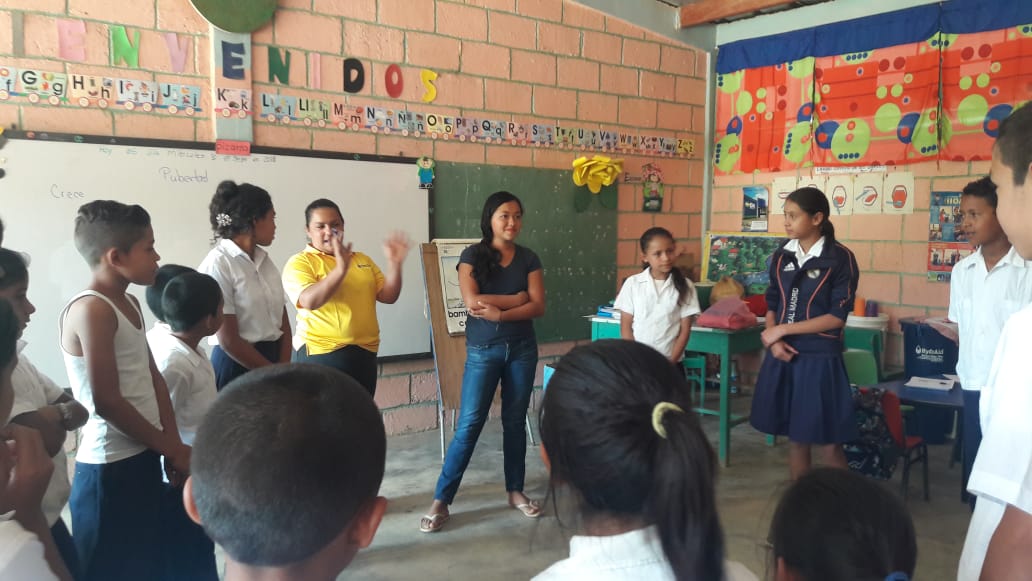 Following research among the families to better identify needs and mindsets, PWW developed a MHM education program to incorporate into their WASH training curriculum for families and schools. The MHM curriculum includes educational programming addressing puberty (among both genders) and menstruation, including the biology as well as necessary tools and practices. The workshop includes discussion about teenage pregnancy prevention, and is taught to girls and women, boys and men. There is also specific MHM training for teachers/educators. In addition to supporting the health of women and girls, the MHM programming serves to support their overall wellbeing by addressing social stigmas and taboos related to menstruation and working to normalize this natural process.
Following research among the families to better identify needs and mindsets, PWW developed a MHM education program to incorporate into their WASH training curriculum for families and schools. The MHM curriculum includes educational programming addressing puberty (among both genders) and menstruation, including the biology as well as necessary tools and practices. The workshop includes discussion about teenage pregnancy prevention, and is taught to girls and women, boys and men. There is also specific MHM training for teachers/educators. In addition to supporting the health of women and girls, the MHM programming serves to support their overall wellbeing by addressing social stigmas and taboos related to menstruation and working to normalize this natural process.
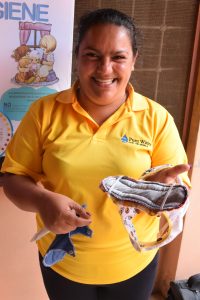 “During the workshop, we explain that it is a biological, natural process and that every woman in the world is subject to it,” says Karla. “We explain why it happens, when it happens, what to expect, and which kind of materials should be used to absorb the blood safely.”
“During the workshop, we explain that it is a biological, natural process and that every woman in the world is subject to it,” says Karla. “We explain why it happens, when it happens, what to expect, and which kind of materials should be used to absorb the blood safely.”
Globally, research has consistently demonstrated that girls’ inability to manage menstruation at school directly results in school absenteeism and creates severe, negative economic consequences in their own lives, their communities, and, ultimately, their countries.
Conversely, when girls receive an education, it strengthens economies and reduces inequality. Girls who receive an education are less likely to marry young and more likely to lead healthy, productive lives. They earn higher incomes, participate in the decisions that most affect them, and build better futures for themselves and their families. Gender-equitable education systems help keep both girls and boys in school, building prosperity for entire countries. (source)
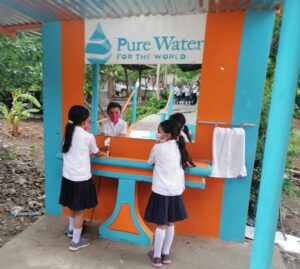 PWW’s school WASH implementation programs have also evolved to provide more support for MHM. This includes the provision of gender-specific bathrooms/toilets with doors that can be safely closed and locked as well as clean water in the bathrooms to allow girls to privately manage any personal cleaning needs. PWW’s school WASH program includes training about making reusable sanitary pads as well as the proper cleaning of and/or disposal of used sanitary products. WASH facilities also include reliable access to clean water at schools and handwashing stations, with students receiving training about effective handwashing techniques.
PWW’s school WASH implementation programs have also evolved to provide more support for MHM. This includes the provision of gender-specific bathrooms/toilets with doors that can be safely closed and locked as well as clean water in the bathrooms to allow girls to privately manage any personal cleaning needs. PWW’s school WASH program includes training about making reusable sanitary pads as well as the proper cleaning of and/or disposal of used sanitary products. WASH facilities also include reliable access to clean water at schools and handwashing stations, with students receiving training about effective handwashing techniques.
 PWW’s MHM program at schools serves to proactively overcome unnecessary obstacles to achieving an education by empowering girls with the tools and knowledge to privately, safely manage their menstrual cycles at school (and home) in a healthy, dignified manner. This foundation supports girls’ overall health and ability to achieve an education, enabling them to focus on opening the doors to their future and reaching their full potential.
PWW’s MHM program at schools serves to proactively overcome unnecessary obstacles to achieving an education by empowering girls with the tools and knowledge to privately, safely manage their menstrual cycles at school (and home) in a healthy, dignified manner. This foundation supports girls’ overall health and ability to achieve an education, enabling them to focus on opening the doors to their future and reaching their full potential.
PWW’s MHM curriculum in Honduras has evolved tremendously through the years, receiving widespread recognition, support and engagement from other NGOs, including UNICEF and CAWST, as well as recognition among local and national government agencies, including the Honduran Ministry of Education.
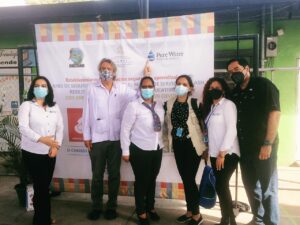
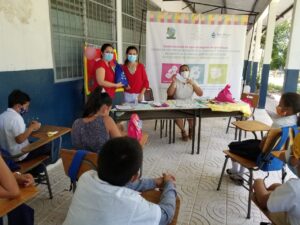
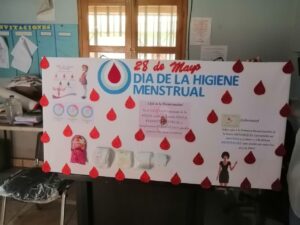
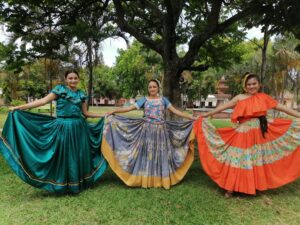
The MHM model created in Honduras has been shared with the PWW team in Haiti and is being localized to address the adolescent girls and women in Limonade. Stay tuned for updates to come!
Read more about PWW activities in Haiti & Honduras in celebration of Menstrual Hygiene Day 2022.
